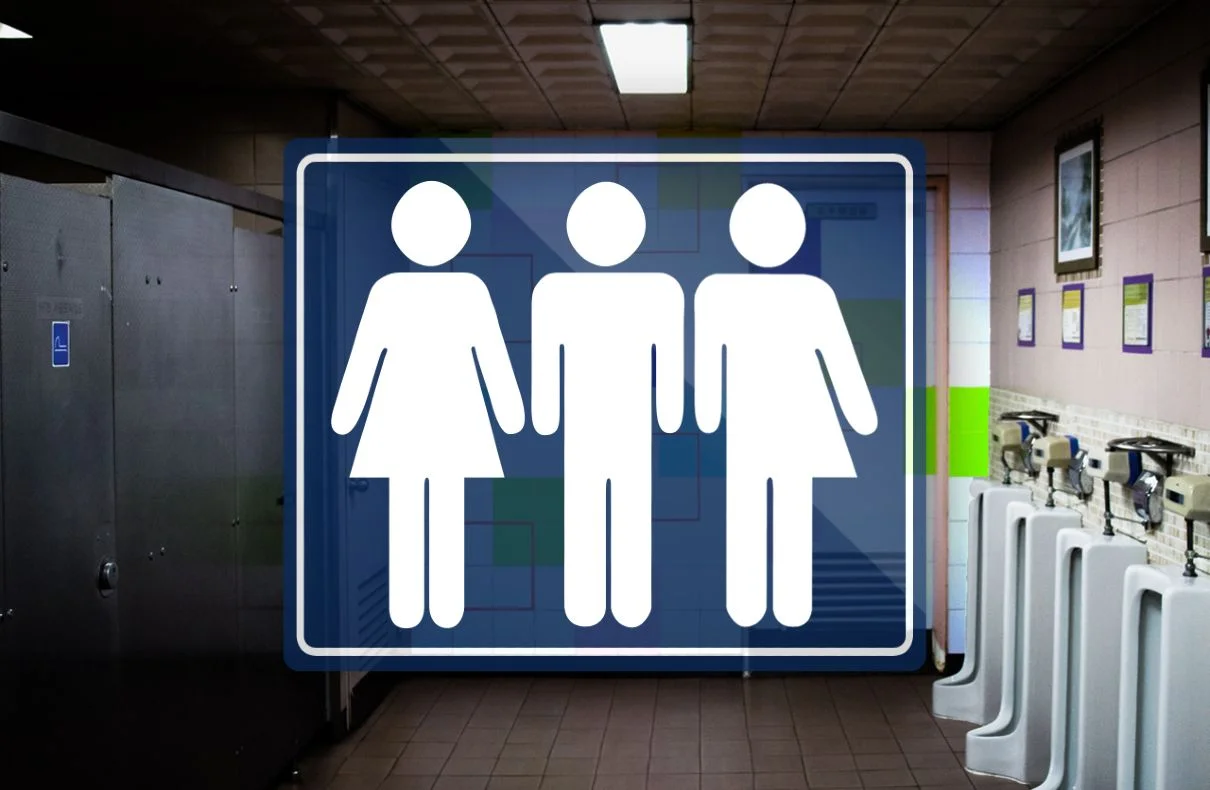
The Supreme Court’s recent decision to decline an appeal from an Indiana school district regarding bathroom access for transgender students has sent shockwaves through the nation. This contentious issue has divided opinions across the country, with federal appeals courts offering differing rulings on whether school policies restricting bathroom usage for transgender students violate federal law or the Constitution.
The case in question revolves around the Metropolitan School District of Martinsville, Indiana, and their attempt to deny a transgender boy, identified as A.C., access to the bathroom that aligns with his gender identity. The school district argued that it should not be obligated to allow transgender students to use the bathrooms of their choosing. This raised questions about the applicability of the Constitution’s 14th Amendment, which guarantees equal protection under the law, and Title IX, a federal law prohibiting sex discrimination in education, in protecting transgender students’ rights in this context.
Insane Crime Spree Exposed! NYC’s Notorious Stabbing Suspect Revealed
In 2023, the Chicago-based 7th U.S. Circuit Court of Appeals ruled against the school district, upholding a federal judge’s injunction that allowed several transgender students, including A.C., to use their preferred bathrooms. The court noted that A.C. had identified as a boy since the age of 8 and had consistently presented himself as male in all aspects of his life. This ruling highlighted the increasing recognition of transgender rights within the legal system.
However, the federal appeals courts remain divided on the issue. The appeals court based in Richmond, Virginia, has also ruled in favor of transgender students, while the Atlanta-based appeals court has taken a different stance. This conflicting precedent has created uncertainty and ongoing litigation in lower courts across the country.
By declining to intervene in the Martinsville case, the Supreme Court has effectively allowed the appeals court ruling to stand. This decision does not settle the issue definitively but rather leaves the door open for further litigation and potential future involvement by the Supreme Court. It is expected that the Supreme Court will eventually weigh in on the matter and provide more comprehensive guidance on transgender rights in the context of bathroom access.
The Supreme Court’s decision not to intervene in the Martinsville case means that similar lawsuits and disputes will continue to be fought in lower courts nationwide. Different judges will likely reach differing conclusions, resulting in a patchwork of rulings across different jurisdictions. This lack of consistency further underscores the need for the Supreme Court to provide clarity on the issue.
The Biden administration has taken a clear position on transgender rights, asserting that Title IX protects against discrimination based on sexual orientation and gender identity. This means that transgender students should be protected from discrimination and have the right to use bathrooms that align with their gender identity. However, this approach has faced challenges, both in cases related to bathroom access and school sports.
The administration’s proposed rule for transgender student athletes, which allows for some restrictions in competitive high school and college sports, has been met with opposition. These debates highlight the complex and sensitive nature of the issue, where competing interests and concerns must be carefully balanced.
The Supreme Court’s decision has significant implications for the ongoing fight for transgender rights. While it does not establish a binding precedent, it maintains the progress made by the 7th Circuit’s ruling and reinforces the growing recognition of transgender individuals’ rights within the legal system. This decision also signals the Supreme Court’s awareness of the need to address the issue in the future.
Man Shot and Killed Inside Moving Subway Train in Brooklyn
It is important to note that the Supreme Court has previously ruled in favor of LGBTQ rights. In a surprising 2020 ruling, the court held that federal law prohibiting sex discrimination in employment also extends protection to LGBTQ individuals. This ruling, authored by conservative Justice Neil Gorsuch, ignited controversy but demonstrated the court’s commitment to equal protection under the law.
As the legal battles over transgender rights continue, it is clear that the issue is far from settled. The conflicting rulings across different appeals courts and ongoing litigation highlight the need for a definitive resolution. The Supreme Court’s eventual involvement will be crucial in providing clarity and establishing a uniform standard for transgender students’ rights in schools.
In the meantime, advocacy groups, educators, and policymakers will continue to push for greater inclusivity and protection for transgender students. The issue extends beyond bathroom access and encompasses broader concerns of equality and acceptance. As society evolves and attitudes change, it is essential that the legal system reflects these advancements and ensures equal treatment for all individuals, regardless of their gender identity.
